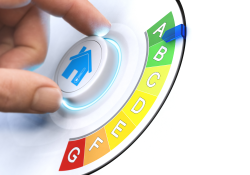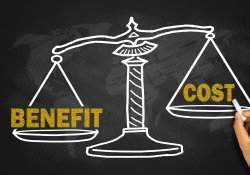Benefits of Upgrading to Energy-Efficient Windows
August 20, 2024 10:35 amHave you noticed your energy bills creeping up? Or perhaps you’re simply looking for ways to make your home more eco-friendly? Upgrading to energy-efficient windows could be the solution you’ve been seeking. This blog post will guide you through the manifold benefits of making this investment, from tangible savings on your utility bills to contributing to a more sustainable future. By the end of this read, you’ll understand how energy-efficient windows work, why they’re worth considering, and what to keep in mind before taking the plunge.
 The Global Push for Energy Efficiency
The Global Push for Energy Efficiency
Energy efficiency isn’t just a buzzword; it’s a global movement. From corporations to individual households, everyone is jumping on board to reduce energy consumption. The reasons are clear—lower energy bills, reduced carbon footprint, and a more sustainable world for future generations. For homeowners, this movement often starts with simple changes like upgrading to energy-efficient windows.
Benefits for Homeowners
Tangible Savings on Utility Bills
One of the most compelling reasons to upgrade is the potential for significant savings on your energy bills. Studies show that homeowners can save anywhere from 12% to 33% on heating and cooling costs just by installing energy-efficient windows.
Improved Comfort
No more drafts or cold spots near windows. Energy-efficient windows ensure a more consistent indoor climate, making your home more comfortable year-round. They also help reduce noise pollution, offering a quieter living environment.
Enhanced Home Value
Energy-efficient windows are a valuable selling point. Potential buyers appreciate the lower energy costs and increased comfort these windows offer, making your home more attractive if you decide to sell it in the future. In fact, many real estate experts agree that homes with energy-efficient upgrades often sell faster and at higher prices.
Environmental Impact
Reducing Carbon Footprints
Every kilowatt-hour of electricity saved translates to a reduction in greenhouse gas emissions. By upgrading to energy-efficient windows, you’re not just saving money; you’re also contributing to a healthier planet. According to the U.S. Department of Energy, if every household replaced their windows with energy-efficient models, the nation could save billions of dollars in energy costs and prevent millions of tons of carbon dioxide from entering the atmosphere.
Contributing to a Sustainable Future
Using less energy reduces the demand for power plants, many of which still rely on fossil fuels. This decreased demand helps lower the overall carbon footprint, contributing to a more sustainable future. Energy-efficient windows are a small but impactful step in the right direction.
Supporting Eco-Friendly Manufacturing
Many manufacturers of energy-efficient windows adhere to sustainable practices. By choosing these products, you’re supporting companies that prioritize environmental responsibility, further amplifying your positive impact.
 Considerations Before Upgrading
Considerations Before Upgrading
Costs
Upfront costs can be a concern. However, the long-term savings on energy bills often outweigh the initial investment. Additionally, many regions offer rebates or tax incentives for upgrading to energy-efficient windows, making it a more affordable option.
Material Options
Energy-efficient windows come in various materials, including vinyl, wood, aluminum, and fibreglass. Each has its pros and cons. Vinyl is low maintenance and affordable but may not offer the same aesthetic appeal as wood. Wood provides excellent insulation but requires more upkeep. Aluminum is durable but can conduct heat, making it less efficient. Fiberglass offers a good balance of durability and efficiency but comes at a higher cost.
The Installation Process
Proper installation is crucial for maximizing the benefits of energy-efficient windows. Professional installation ensures that windows are correctly fitted and sealed, preventing any air leaks that could compromise their efficiency. It’s advisable to hire certified contractors who specialize in energy-efficient window installations.
Upgrading to energy-efficient windows is a wise investment for homeowners looking to save on energy costs, improve home comfort, and contribute to a sustainable future. While the initial cost may seem daunting, the long-term benefits make it worthwhile. From tangible savings on utility bills to reducing your carbon footprint, the advantages are clear. Investing in energy-efficient windows is not just a home improvement; it’s a step toward a more sustainable and comfortable future.
